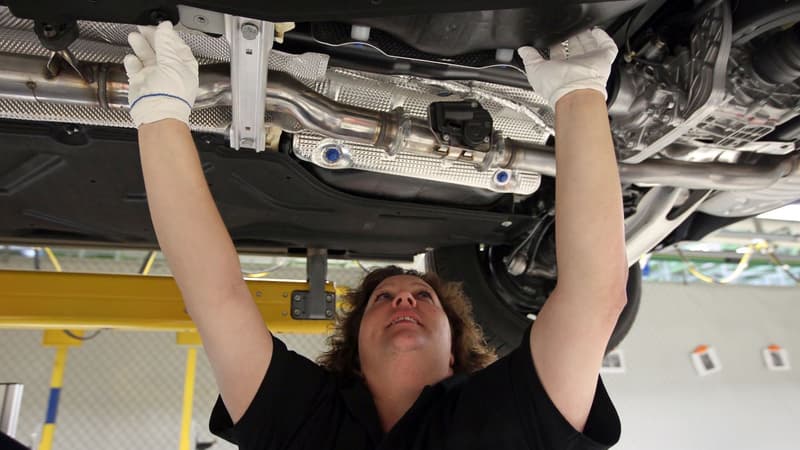The German car market continued to rise in November, confirming a rebound for the end of the year, despite an annual average that still remains at a historically low level, according to figures published on Monday.
A total of 260,512 cars have been registered in Europe’s largest economy, an increase of 31.4% in a year, the Federal Automobile Agency (KBA) said in a statement on Monday.
This is the fourth consecutive increase of this indicator.
“At the end of a generally disappointing automotive year, hope appears for a final little sprint,” Reinhard Zirpel, president of the VDIK auto importers’ federation, was quoted as saying in a press release.
Fourth quarter of consecutive increase
The balance since January, however, remains below its 2021 level, already historically low. The annual gap narrows with a difference of -2.4% in November, compared to -5% in October.
The automotive industry was hit hard in 2020 and 2021 by sanitary restrictions during the coronavirus pandemic, which impacted the supply of semiconductor manufacturers.
“The current growth shows that the availability” of these items “is improving after causing massive drops in production last year,” says Peter Fuss, an expert at EY.
But the branch is now facing the consequences of the energy crisis, the war in Ukraine and the zero Covid policy in China, which is weighing down the entire German industry.
mixed perspective
Therefore, the outlook is “mixed” for 2023, according to EY.
In detail, 100% electric cars represented 22.3% of registrations in November, ahead of diesel (15.3%), but behind gasoline (27.9%).
“For the first time, more than 100,000 electric vehicles have been registered in a month,” greeted the VDA federation of manufacturers in a press release.
Volkswagen brand cars remained market leaders in November, with a share of 18.0%, ahead of Mercedes (10.6%).
Other European markets such as France, Austria, Spain, Italy and Switzerland posted increases in November, albeit less significant than in Germany, according to EY.
Source: BFM TV


